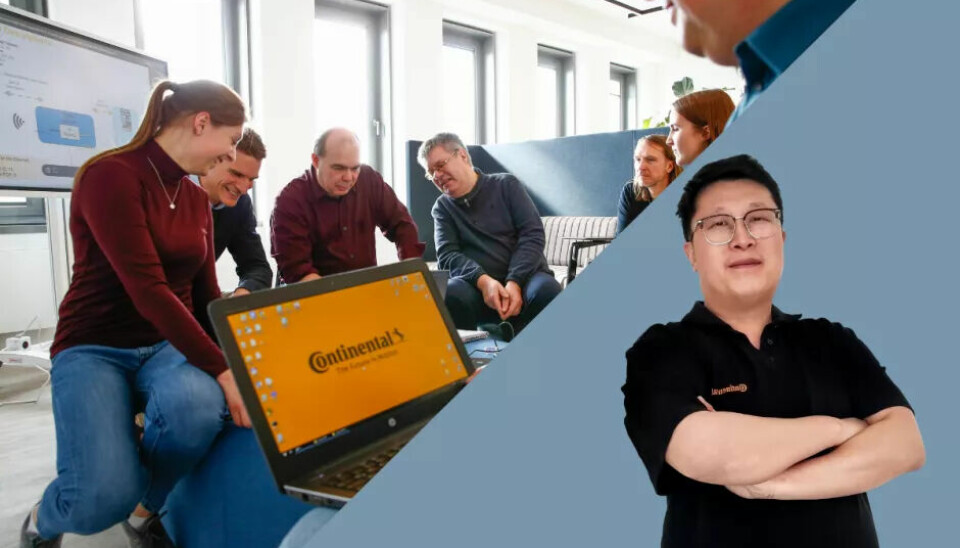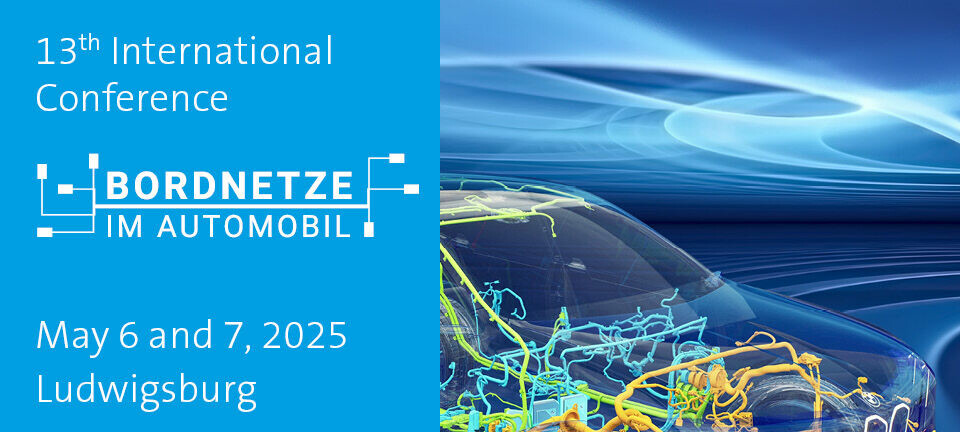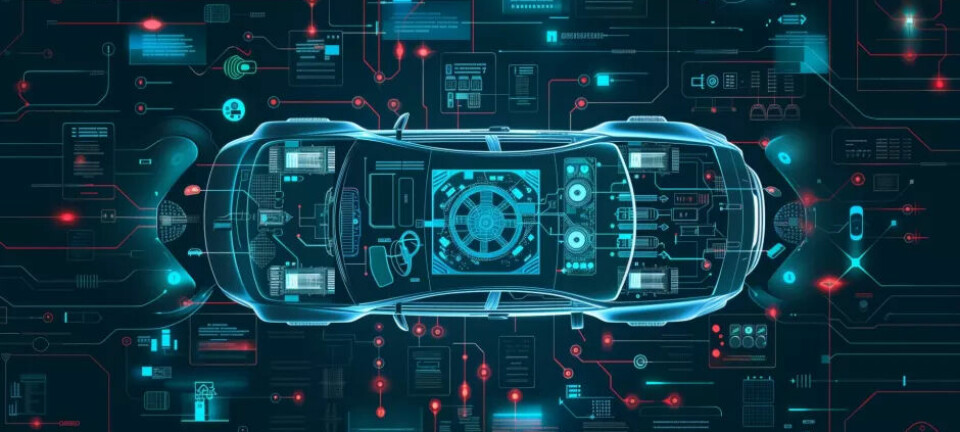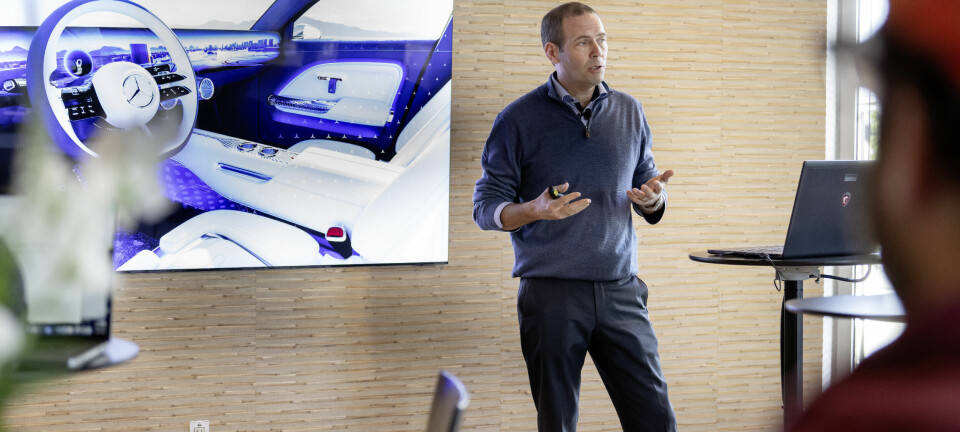New Job Profiles
Speedmasters of Software
Song Lin (right) is a DevOps Engineer at Continental and does much more than just develop software.
Continental / Collage
How can the rapidly growing amount of data in vehicles be processed quickly and securely - and thus create added value? DevOps engineers ensure this. A job that becomes very complex with connected vehicles.
It is clear that the car - like a smartphone - is now part of the digital lifestyle - or can be. It is part of our information, entertainment, and service network. And it will act more and more autonomously. It is also clear that the software-defined vehicle is not a soon-to-fade trend term, but precisely describes the core of vehicle development.
For OEMs and suppliers, in-house software development is becoming a decisive competitive factor. This means mastering complexity, using artificial intelligence, and being fast. This requires people like Song Lin. He is a Senior DevOps-Data Engineer at Continental Automotive.
Why DevOps work is more than programming
"As a DevOps Engineer in the AI and Data Team, I am responsible for the integration and automation of development and operational processes in AI projects," explains Lin. Viewed soberly, Lin and his colleagues are coders. But the way they work and their view of the big picture sets them apart from pure programmers - whose half-life could be reduced due to the triumph of AI.
The principle of DevOps combines Development with Operations in one team. No silos that would unnecessarily slow down and make the software development process error-prone. On the way to the fully connected, autonomous vehicle, the automotive industry cannot take detours - people like Lin ensure short development cycles, so that one can react much faster to market requirements.
Lin's job primarily involves the continuous development and optimisation of software, the prompt resolution of issues in handling it, and the documentation of development and operational processes - a job that becomes very complex with connected vehicles. Lin puts it more technically: "My main tasks include the design of CI/CD pipelines (continuous integration and continuous delivery, Ed.) in development, the application of monitoring mechanisms for application performance, and ensuring the security and scalability of our applications and infrastructure."
Even though a certain part of the work is now automated, such as testing, where bugs are automatically searched for in the code, the job is challenging because DevOps engineers do not just scrub lines of code but have to meet all sorts of requirements from various departments.
This is what the everyday life of a DevOps Engineer looks like
"The position of DevOps Engineer was created about a decade ago when the need for closer collaboration between development and business was recognised," explains Lin, "In the automotive industry, this role has evolved significantly in recent years and is now indispensable." Among Lin's milestones is the fact that Continental has integrated security and compliance scans as well as automated tests and Infrastructure-As-Code.
Lin certainly doesn't get bored: "My workday is very varied. I often start with meetings with colleagues from India, Romania, and other locations in Germany," he reports, "Communication with geographically dispersed teams is an important part of my day." Then it involves, among other things, processing scan logs and security alerts or reviewing cybersecurity standards and analysing what Lin calls "cost anomalies."
"What is particularly exciting about my role is the rapid development and integration of new technologies," Lin explains, "It is fascinating to see how AI solutions are revolutionising the automotive industry and how our work can support and even bring about innovation." The complexity of the systems and the challenges associated with integrating software in compliance-critical environments, such as the EU AI Act, are often surprising.
"One of my greatest achievements was the successful implementation of a robust CI/CD pipeline that significantly automated the development cycle and improved the quality of our software products," says the DevOps engineer, "Additionally, I am proud that through our work we were able to significantly reduce the effort required to roll out new applications."
These qualifications should be brought along
Song Lin studied computer science at the Karlsruhe Institute of Technology (KIT) and worked there as a research assistant. Afterwards, he worked as a consultant at the technology consultancy Accenture. "I have been with Continental since 2016, have acquired various certifications and continuously furthered my education to expand my skills," says Lin.
He advises aspiring DevOps engineers: "You should have a deep understanding of cloud services, scripting and programming languages like Python and Bash, as well as experience with container technologies like Docker and orchestration tools like Kubernetes." A degree in computer science or a related discipline is advisable, as is practical experience in software development. Lin: "Continuous further education and certifications are also important to advance in this job. And possibly a certain willingness to experiment and play that goes beyond everyday work: Lin, father of two sons, likes to dedicate himself to smaller AI projects in his free time. "I built my own ChatGPT and hosted the website using CI/CD pipelines," he says.
If you have the relevant skills, it seems like a good idea to develop your career in this direction: "The automotive industry will increasingly be shaped by software solutions, and the demand for DevOps engineers will continue to rise," Lin is certain, "This role will become more important as more productive approaches to software solutions are expected."
This article was first published at automotiveit.eu


























